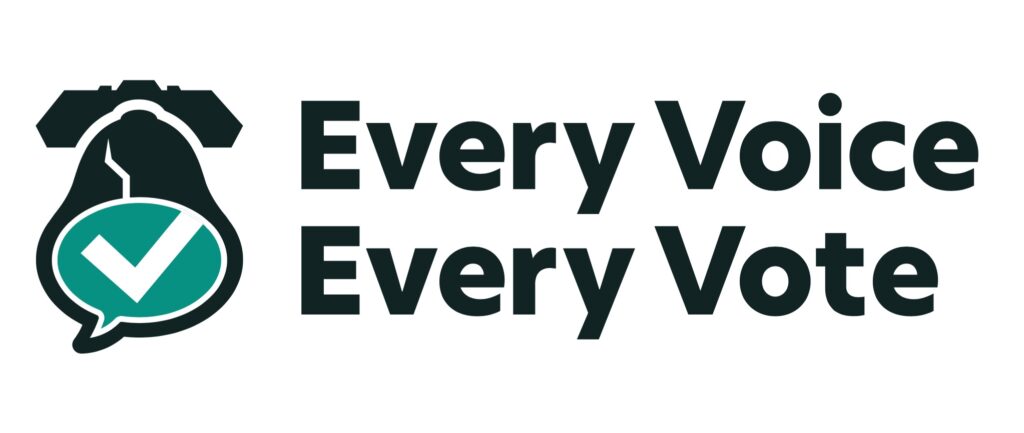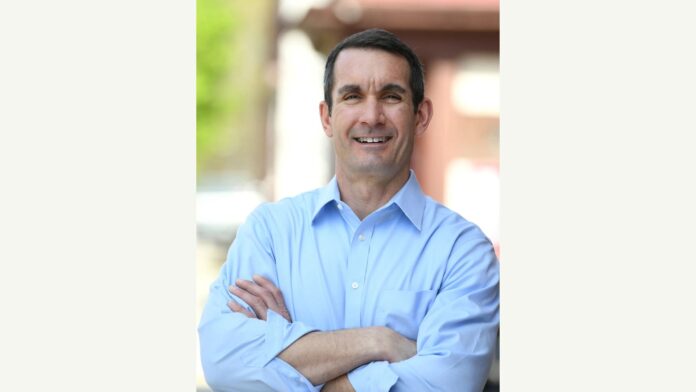Eugene DePasquale has a 14-year history as a representative for Pennsylvania. Most recently, he served as the auditor general from 2013 to 2021. Directly before that, he served in the Pennsylvania House of Representatives, representing York County’s 95th district from 2007 to 2013. After leaving office, he taught at the Widener University School of Law and is presently an adjunct law professor at the University of Pittsburgh. He is currently running for Pennsylvania’s attorney general as the Democratic nominee, with a platform that openly supports LGBTQ+ rights.
PGN reached out to both candidates for attorney general in advance of November’s election to discuss their stances on LGBTQ+ issues. Some responses from DePasquale’s interview have been edited for length or clarity. His opponent, Republican Dave Sunday, has not responded to our inquiry.
How is the campaign going, and how do you feel about it?
I believe it’s going well. Obviously, there’s been a dramatic momentum shift in the last month, and you can feel it when you’re at all these events. Even in Potter County, there were 150 Democrats at the picnic. So, there certainly has been a real momentum shift with more volunteers, but I’m under no illusions. It’s Pennsylvania. It’s always going to be close.
What do you think are the biggest challenges facing the LGBTQ+ community, and how are you planning to address them?
There are a couple of specific areas I look at. Number one is the bullying that goes on in the schools. As attorney general, I’m going to make it clear that any bullying of anybody, but particularly the LGBTQ+ community, is not going to be tolerated. And I’ll be working [with the] school board, school administrations and officials to make sure that the message is clear: We can work together to make sure our students are better protected so that they can learn. So that’s certainly in one area.
And two, we see Project 2025 and I view that as dangerous stuff. We’ve got to be prepared to beat back some of this craziness, whether it be [attacks on] reproductive freedom or partnerships. We’ve got to be prepared for that. As attorney general, I will always stand up for those personal freedoms.
What LGBTQ+ community leaders and organizations do you have a history of working with in the past?
It’s been across the board, such as Liberty City Democrats, where they endorsed me even in my first race for state auditor, where I came out [in support of] marriage equality before President Obama did. I’ve always had a 100% record — whether it was during my time in the state House [of Representatives] or as attorney general — every [local] LGBTQ+ community group has endorsed my campaign.
What’s the first policy you have in mind to address the inequity directed at the LGBTQ+ community? And how would you plan on implementing it?
Well, my number one area [of focus] would be on the school side of it, making sure our LGBTQ+ community kids in schools are better protected. I would begin that by reaching out during the transition [of power] to make sure they know where I am coming down on this. And my goal is to have it be a partnership and not be confrontational.
So, for example, I would be meeting with school administration officials like The School Superintendents Association. I want to hear what they’re seeing on the ground and I want to give them my perspective as to what I believe. I can’t stop someone from having political views, but if some kid is getting harassed online, I can offer my team to protect that kid and kids in similar situations by making sure we’re starting that discussion early on.
And what role does the attorney general play in addressing things such as book bans?
I strongly believe that I have the right to protect the First Amendment, and that protection extends to people having the ability to read books they want to read. I’m not a big political button person, but the first button I had on my college book bag was, “I read banned books.”
Why is that a point of pride for you?
Oh, first of all, who’s the government to tell me what I can and can’t read? I mean, you can tell me which stop sign to stop at, and I’m totally cool with that. Yeah, tell me the speed limit. Totally cool with that. Tell me I can’t break into someone’s home. Totally cool with that. Don’t tell me what to read.
And on a more substantive level, I want kids reading. Now, look, if a parent says, “I don’t want my kid reading a certain book,” that’s between the members of that family and that’s a different issue. I understand where the parents are coming from. I remember when my kids were younger, and my son was in the third grade. He was a little [young] for “Zen and The Art of Motorcycle Maintenance.” [We said], “Wait till 6th or 7th grade on that.” I get that, but that’s a family discussion that shouldn’t be the government doing it.
It always bothered me. Without going into some of the First Amendment cases or naming names, they may not have been my reading choice, but I’m like, “that’s not for the government to decide.”
What drives you to run for attorney general?
Well, at this time in particular, I’m very concerned that our country is in a danger zone here, and we all have to do our part. And for some people, that part might be like dropping [the campaign] for somebody, like [Biden did for] Kamala Harris, who is running for president. For me, it’s “I can do this. I can be the attorney general. I can run for this. I can win, and I can defend personal freedom.”
As the Philadelphia Inquirer said when they endorsed me in the primary, “We should not have partisan warriors as the state’s top prosecutor.” (Note: PGN could not find evidence of the term “partisan warriors” being used by The Inquirer regarding DePasquale.) I’ve had the ability to call it like I see it from the very beginning of my time in public life and in taking on a fight no matter what the consequences are. I was tough and fair as the state’s chief investigator on Gov. [Tom] Corbett and on Gov. [Tom] Wolf. And I’ll take that same approach as the state’s attorney general. When it comes to standing up for people that can’t always stand up for themselves, I’ve been doing that my whole life, from the time I was six years old.
Do you mind defining a “partisan warrior” and explaining how you’re not one?
Yeah, it’s when you just get into your ideological bubble. And if your own side does something wrong, you ignore it. And if the other side is doing something you’re unsure about, you go after them anyway. No, as the attorney general, my job is to take on fights against people that are harming Pennsylvanians, regardless of who it is.
I know that you’re looking to promote equality in law enforcement, healthcare and education. Especially right now, when health care intersects with LGBTQ+ rights in such a severe way, where people who are transitioning are being deprived of the ability to do that, how are you planning to address that?
While this isn’t as much of an issue in urban areas, rural Pennsylvania is losing hospital access at an alarming rate. [I’ll start by] making sure we are preventing one or two hospital systems from getting too much power and working to ensure that these nonprofit hospitals are complying with the Purely Public Charity Act to protect healthcare access for everybody. Whether I’m in Philadelphia or rural Pennsylvania, it’s the same message.
When it comes to the LGBTQ+ community and when it comes to reproductive freedom, my job is to make sure doctors and patients are able to make decisions based on what’s best for the health of the individual, and to limit government involvement in that.
Are there any parting thoughts you’d like to add?
My experience with the LGBTQ+ community might be a little different than most. My parents owned the bar when I was younger, Alley’s. It became the Panther Hollow Inn. Across the street was The Holiday Bar, which was a gay, mostly men’s, bar. My dad grew up with the owner, Chucky Porter, in the same neighborhood of Oakland. So I’ve had experience [with the LGBTQ+ community] since I was young and working in the bar. “Hey, go over and get a bag of ice from Chucky.” And I would go over there and there would be gay guys holding hands. I was a teenager, and it was no big deal [to me]. We’ve evolved as a society since then, but from the very beginning, I just had a different experience [compared] to a pretty big chunk of the public from the time I was younger.
For more information on Eugene DePasquale, visit depasqualeforag.com.

